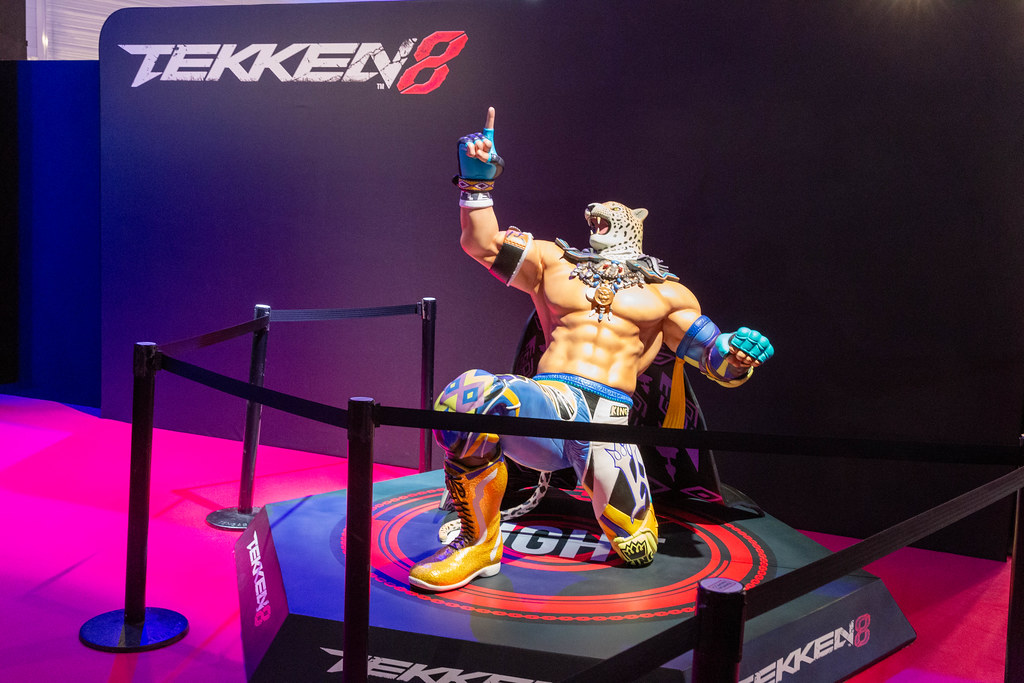When Gearbox Software announced that ‘Borderlands 3’ would be an Epic Games Store exclusive, the gaming community was set ablaze with opinions. Steam loyalists felt betrayed, while others saw a glimmer of change in the PC gaming market. Randy Pitchford, Gearbox’s CEO, took to Twitter to defend the decision, sparking a conversation about the future of digital distribution platforms.
Pitchford’s Vision for a Competitive Digital Storefront Landscape
Pitchford’s argument hinges on the idea that competition is healthy for the industry. He acknowledges that while the Epic Games Store lacks certain features that Steam offers, its aggressive roadmap promises rapid growth and innovation. Pitchford believes that the release of ‘Borderlands 3’ will act as a catalyst, accelerating the development of these features. He boldly claims, ‘Epic will inevitably surpass Valve on features and quality of service.’
The CEO’s stance is not without merit. Before Epic’s entry into the market, Valve’s Steam had little competition and, according to Pitchford, this led to complacency. He suggests that Valve’s wealth was not sufficiently reinvested into Steam, a situation that could change with Epic’s challenge. Pitchford sees Epic as the disruptor capable of breaking Steam’s monopoly, which could lead to lower costs for developers and publishers, and by extension, benefits for consumers.
Pitchford’s vision for the future is one where the digital storefront landscape is diversified. He predicts that in five to ten years, Steam may no longer be the dominant force it once was. This is not just about Epic surpassing Valve, but about creating a more vibrant, competitive market. The immediate response from Valve, improving revenue sharing for successful games, indicates that they are taking the competition seriously.
The debate over exclusivity and platform competition is a complex one. On one hand, it can be seen as limiting consumer choice. On the other, it can drive platforms to improve and innovate. Pitchford’s lengthy Twitter thread, which was met with both support and backlash, reflects the passion of the gaming community and the high stakes for developers and platforms alike.
As we delve into the intricacies of this digital store war, it’s clear that the outcome will shape the future of PC gaming. The decisions made by companies like Gearbox and the strategies of platforms like Epic Games Store and Steam will determine the landscape of game distribution for years to come. Randy Pitchford’s bet on Epic may be controversial, but it’s undeniably a pivotal moment in the industry.

Gearbox Software’s Bet on the Epic Games Store and the Future of the Industry
Continuing our exploration into the gaming industry’s digital storefront battle, we turn our focus to Gearbox Software, a company that has consistently pushed the boundaries of gaming and isn’t afraid to bet on change. Gearbox’s decision to make ‘Borderlands 3’ an Epic Games Store exclusive was a calculated risk, one that CEO Randy Pitchford fervently defends. His belief in Epic’s potential to innovate and outpace Valve is rooted in his long-term vision for a more competitive market that benefits all stakeholders—consumers, developers, and publishers alike.
Pitchford’s confidence in Epic Games is not unfounded. His experience with both Valve and Epic, spanning over two decades, gives him a unique perspective on the industry’s evolution. He has seen firsthand how Valve’s Steam platform revolutionized digital distribution, but he also recognizes that innovation can stagnate without competition. Pitchford’s assertion that ‘Epic’s investment in technology will outpace Valve’s substantially’ is a bold statement, reflecting his belief that Epic’s commitment to growth and improvement will drive the industry forward.
Gearbox Software itself is no stranger to innovation. From its early days creating expansions for Valve’s Half-Life to developing its own successful franchises like ‘Brothers in Arms’ and ‘Borderlands,’ Gearbox has shown a willingness to evolve and adapt. The company’s expansion into publishing with Gearbox Publishing and the establishment of Gearbox Studios for television and film productions are further examples of its diverse approach to growth and content creation.
The acquisition of Gearbox by the Embracer Group and the subsequent plans to divest to Take-Two Interactive are indicative of the dynamic nature of the gaming industry. These moves demonstrate Gearbox’s value and the confidence that major players have in its future. As the gaming landscape continues to shift, Gearbox’s agility and readiness to embrace change will be crucial.
Pitchford’s vision for a diversified digital storefront landscape is already taking shape. The Epic Games Store’s competitive revenue share model prompted Valve to adjust its own revenue sharing terms for successful games. This is a clear sign that the competition is having a tangible impact on the market, forcing platforms to reconsider their strategies and offerings.
The debate over platform exclusivity is complex, with valid arguments on both sides. While some consumers decry the limitation of choice, others see the potential for these exclusive deals to lead to better services and more consumer-friendly policies. Pitchford’s belief that ‘this was the moment where the digital stores on PC became unmonopolized’ suggests that he sees these exclusives as a necessary step towards a more competitive and healthy market.
Looking ahead, the trajectory of the Epic Games Store and Steam will be closely watched by the industry. If Epic can deliver on its promises and continue to innovate, it may very well reshape the digital distribution landscape as Pitchford predicts. However, Valve is not one to be underestimated, with a history of smart decisions and a wealth of talent. The outcome of this digital store war is far from decided, but it’s clear that the actions taken by companies like Gearbox will play a significant role in shaping the future.
Gearbox Software’s bet on the Epic Games Store is more than just a business decision; it’s a statement about the future of the industry. Randy Pitchford’s belief in competition as a catalyst for improvement is a reflection of the company’s ethos. As we continue to witness the evolution of digital storefronts, it’s evident that Gearbox’s innovative spirit and willingness to embrace change will remain at the forefront of the gaming industry’s transformation. The digital store wars may be contentious, but they are undeniably driving the industry towards a more dynamic and consumer-friendly future.
Related posts:
Gearbox’s Pitchford: Steam may be “a dying store” in 5 to 10 years
Gearbox CEO Defends Epic Games Store and ‘Borderlands 3’ Exclusivity
Gearbox Software





